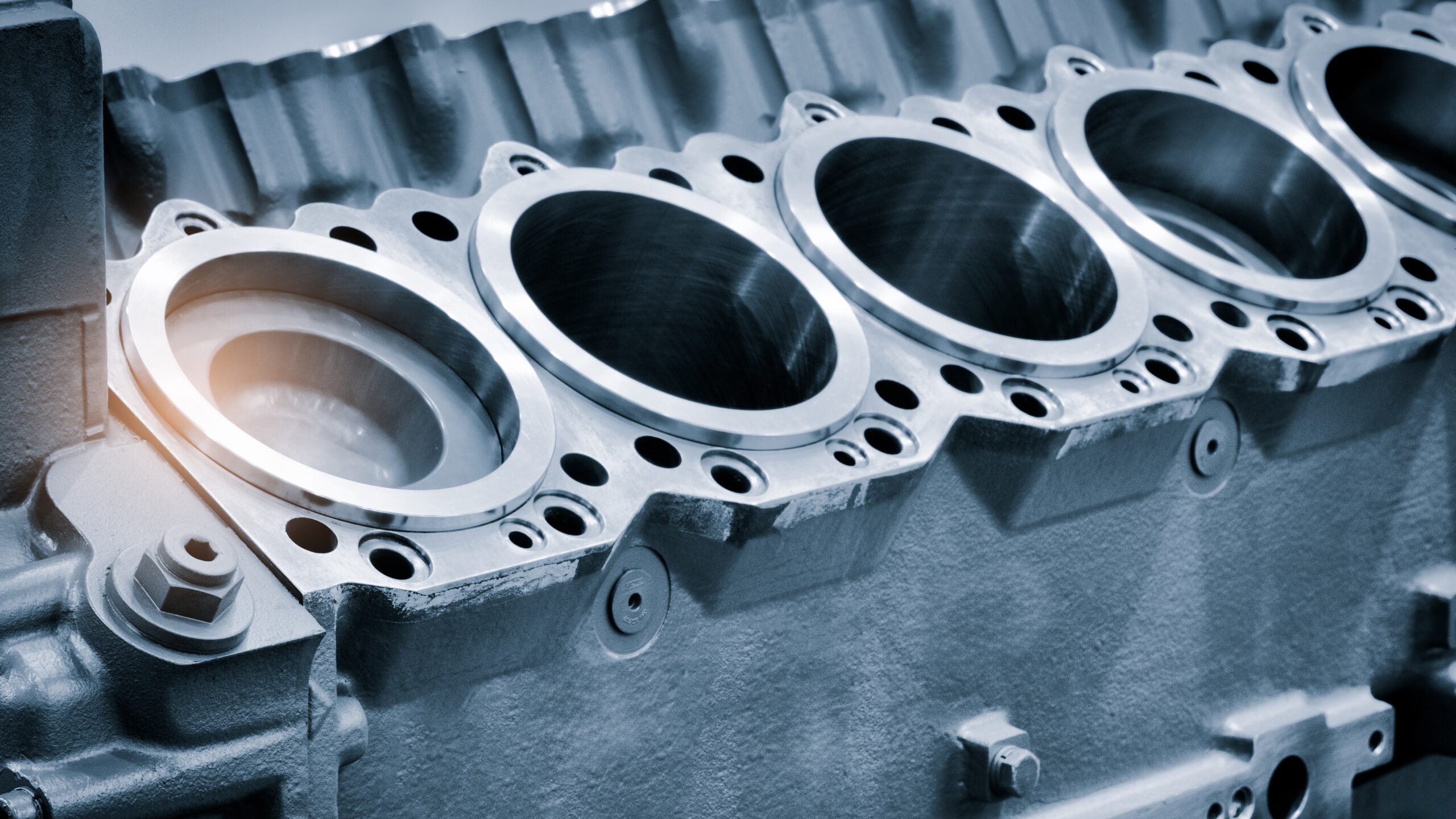When it comes to maintaining your generator’s performance and longevity, fuel quality is often overlooked. Yet, it is one of the most critical factors that can affect how reliably your generator operates, especially during emergencies. At National Generator Sales, with over 45 years of experience in power generation, we understand the importance of keeping your generator in top shape — which includes ensuring its fuel remains clean and effective.
In this comprehensive guide, we’ll explore what fuel polishing is, why your generator needs it, the signs to look out for, and the many benefits of incorporating fuel polishing into your generator maintenance routine. Whether you’re a business relying on backup power or a homeowner wanting peace of mind, understanding fuel polishing can save you time, money, and frustration. Contact us today for more information and see how we can help!
What is Fuel Polishing?
Fuel polishing is a specialised process that cleans and restores diesel or fuel oil by removing contaminants and water, which accumulate naturally over time during storage. This process is essential for generators, as contaminated fuel can cause blockages, corrosion, and inefficient combustion, leading to equipment failure and costly repairs.
Typically, fuel stored for long periods will degrade due to the presence of microbes, sediment, water, and oxidised particles. Fuel polishing uses filtration systems and separation techniques to remove these impurities. It restores the fuel to near-new condition, improving its quality and extending its usability.
The process often involves:
- Removing water from fuel tanks and fuel itself.
- Filtering out particulate matter like dirt, rust, and microbial sludge.
- Treating fuel with additives to stabilise it and prevent future degradation.
Fuel polishing can be performed on-site without the need to drain the fuel tank completely, making it a convenient and effective method for maintaining fuel integrity.
Why Your Generator Needs Fuel Polishing
A generator’s reliability depends heavily on the fuel it uses. Even the highest-quality diesel can deteriorate when stored in tanks for extended periods. Here’s why fuel polishing is essential for your generator:
1. Prevents Fuel Contamination
Fuel tanks naturally accumulate water from condensation and contaminants such as rust and microbial growth. These impurities clog fuel lines and filters, leading to poor engine performance or failure. Fuel polishing removes these contaminants before they cause damage. Without this process, sludge and sediments build up, causing blockages that can result in costly downtime. Regular polishing also helps maintain the integrity of fuel storage systems by preventing corrosion caused by water and acids.
2. Improves Generator Performance
Clean fuel ensures efficient combustion. When fuel is free from impurities, your generator runs smoothly, providing consistent power output when you need it most. Contaminated fuel causes misfires, poor starting, and inefficient fuel consumption. Fuel polishing eliminates the root causes of these problems, helping your generator deliver power at optimum levels. This reliability is crucial, especially during power outages or critical operations where generator failure is not an option.
3. Extends Generator Lifespan
Using unpolished, contaminated fuel leads to corrosion and wear within the generator’s engine components. Regular fuel polishing protects your generator from damage, reducing maintenance costs and extending its operational life. By preventing the accumulation of harmful deposits, polishing safeguards vital engine parts like injectors and fuel pumps. This prolongs service intervals and helps avoid premature breakdowns, ensuring your investment lasts longer and performs consistently.
4. Ensures Fuel Stability
Fuel degrades naturally, especially if stored for months or years. Polishing helps stabilise fuel by removing water and microbial sludge, preventing the fuel from turning acidic or forming gums that can damage the engine. Stable fuel also reduces the risk of fuel system blockages and corrosion, which can be difficult and expensive to repair. By maintaining fuel quality, polishing protects both your fuel supply and your generator’s internal components over time.
5. Reduces Risk of Breakdown
In emergency power situations, a generator must start and run without fail. Fuel polishing reduces the risk of generator failure due to fuel issues, giving you confidence that your backup power will be available when needed. This peace of mind is invaluable, especially in sectors like healthcare, telecommunications, or manufacturing, where power interruptions can cause serious consequences. Regular fuel polishing is a proactive step that ensures your generator is ready to perform at a moment’s notice.
In short, fuel polishing is not just a maintenance task—it’s a critical safeguard. By regularly cleaning and stabilising your generator’s fuel, you protect your equipment, improve performance, and ensure dependable power when it matters most.
Signs Your Generator Needs Fuel Polishing
Recognising when your generator’s fuel requires polishing is crucial for proactive maintenance. Here are common signs indicating it’s time to consider fuel polishing:
Difficulty Starting
Your generator struggles to start or takes multiple attempts. This can be caused by fuel that has degraded or become contaminated, making combustion inefficient. If left unaddressed, this issue may lead to complete failure to start when power is needed most.
Unusual Exhaust Smoke
Excessive black, white, or blue smoke can indicate poor fuel combustion caused by contamination. Black smoke often points to incomplete combustion due to clogged injectors, while white or blue smoke can signal water contamination or burning oil. Persistent smoke issues can cause engine damage and increased emissions.
Engine Misfires or Surging
Irregular engine running or surging is often a symptom of clogged fuel injectors. Contaminated fuel deposits can disrupt the smooth delivery of fuel, leading to fluctuating power output. These performance inconsistencies can accelerate wear and cause more severe engine problems over time.
Reduced Power Output
If the generator is producing less power than usual, dirty fuel could be the culprit. Contaminants restrict fuel flow and impair combustion efficiency, directly affecting output capacity. This reduction compromises your ability to rely on your generator during critical power needs.
Frequent Fuel Filter Changes
Rapid clogging of fuel filters signals fuel contamination. If you find yourself replacing filters more often than recommended, it’s likely that sludge, dirt, or microbial growth is present in your fuel system. Overlooking this can cause damage to pumps and injectors, leading to costly repairs.
Visible Sediment in Fuel Tanks
When you inspect the fuel tank and notice sludge or sediment build-up, fuel polishing is needed. This sediment can settle at the bottom and circulate through the system, causing blockages. Regular polishing removes these deposits, maintaining fuel cleanliness and preventing operational issues.
Fuel Odour Changes
A sour or unusual smell can indicate microbial contamination or fuel degradation. This odour is a sign that bacteria or fungi may be growing in the fuel, which leads to sludge formation and fuel instability. Ignoring these signs could result in extensive damage to fuel lines and engine components.
Water in Fuel
Presence of water in fuel tanks (can sometimes be detected by fuel testing kits or observed as separation in transparent tanks). Water promotes microbial growth and causes corrosion inside the fuel system. It also reduces fuel lubricity, increasing wear on fuel pumps and injectors, which may eventually lead to generator failure.
If you observe any of these issues, contacting a professional for fuel polishing services can prevent further damage and ensure your generator operates reliably. Acting early on these warning signs can save you significant time and money in repairs, while guaranteeing peace of mind that your power supply is dependable when you need it most.
The Benefits of Fuel Polishing
Fuel polishing offers numerous advantages for anyone relying on diesel generators. From enhancing generator performance to protecting your investment, here’s a detailed look at the benefits:
- Clean, Efficient Fuel
The primary benefit of fuel polishing is the restoration of fuel quality. By removing water, dirt, rust, and microbial contaminants, fuel polishing ensures your generator receives clean, efficient fuel. This translates to better combustion and higher engine efficiency, reducing fuel consumption and emissions.
- Enhanced Generator Reliability
With clean fuel, your generator is less likely to suffer breakdowns due to clogged filters or injectors. This is especially critical during power outages when reliable backup power is non-negotiable.
- Prolonged Equipment Lifespan
Dirty fuel accelerates wear and tear inside the generator engine, leading to premature failure and costly repairs. Fuel polishing protects engine components, extending the life of your generator and reducing the frequency of expensive maintenance.
- Cost Savings on Maintenance and Repairs
Avoiding fuel contamination-related damage can save thousands in maintenance costs. Fuel polishing is a preventative measure that’s significantly cheaper than overhauling or replacing generator parts.
- Environmental Benefits
Fuel polishing reduces the production of harmful emissions by promoting cleaner combustion. It also prevents fuel leaks and spills caused by clogged or corroded fuel systems.
- Prevents Microbial Growth
Microbes thrive in the water layers that settle at the bottom of fuel tanks, forming sludge that clogs fuel lines and filters. Fuel polishing removes these microbes and water, halting the cycle of microbial contamination.
- Maintains Fuel Stability
Fuel left untreated can degrade chemically, forming gums and varnishes that damage fuel pumps and injectors. Polishing stabilises the fuel, ensuring it remains usable for longer periods.
- Flexibility for Fuel Storage
For organisations or individuals who store fuel for long periods, fuel polishing provides peace of mind. It means stored fuel is regularly cleaned and refreshed, so it’s ready for use without compromise.
- Supports Compliance and Safety
Certain industries and regulations require regular fuel testing and maintenance. Fuel polishing helps maintain compliance and ensures safe fuel storage, reducing risks associated with fuel degradation.
- Time-Efficient Maintenance
Fuel polishing can be conducted on-site without tank draining or extensive downtime, meaning minimal disruption to your operations or power supply.
Fuel polishing is a small investment that yields significant returns in performance, reliability, and peace of mind. It’s a vital service that complements your generator maintenance plan and ensures uninterrupted power supply when it matters most.
In Conclusion: Power Up Your Peace of Mind with Fuel Polishing
At National Generator Sales, we believe that a generator is only as good as the fuel it runs on. With our decades of expertise and commitment to quality, we provide tailored fuel polishing services designed to keep your generator running smoothly and reliably. Located strategically near London and Cambridge, we serve a wide range of industries and clients, delivering innovative power solutions every time.
Don’t wait for fuel problems to catch you off guard. Keep your generator in peak condition with professional fuel polishing from National Generator Sales — because when power matters, you can’t afford to compromise. Get in touch with us today for more information!
FAQs
How often should I have my generator’s fuel polished?
It depends on fuel storage conditions, but typically every 6 to 12 months for stored diesel fuel.
Can I do fuel polishing myself?
Fuel polishing requires specialised equipment and expertise; it’s best done by professionals to ensure thorough cleaning and safety.
Will fuel polishing remove all contaminants?
Yes, professional fuel polishing removes water, particulates, and microbial sludge, restoring fuel to near-new quality.
How long does the fuel polishing process take?
The process can vary depending on tank size and contamination level, usually from a few hours to a full day.
Does fuel polishing work on petrol generators?
Fuel polishing is typically used for diesel and fuel oils, as petrol degrades differently and is usually used more quickly.
What happens if I don’t polish my fuel?
Contaminated fuel can cause generator failure, increased maintenance costs, and reduced lifespan.
Can fuel polishing improve fuel efficiency?
Yes, clean fuel burns more efficiently, improving generator fuel economy and reducing emissions.
Is fuel polishing environmentally friendly?
Yes, it prevents waste by restoring fuel and reduces harmful emissions from poor combustion.
How do I know if my fuel is contaminated?
Signs include difficulty starting, smoke, sediment in tanks, and clogged filters.
Can National Generator Sales help with fuel polishing?
Absolutely. We offer expert fuel polishing services alongside our advanced generator solutions to keep your power supply reliable.
For trusted, professional fuel polishing and power generation services, contact National Generator Sales today. Let us help you protect your investment and ensure your power never fails. Visit nationalgeneratorsales.co.uk or call us now to discuss your fuel maintenance needs.




